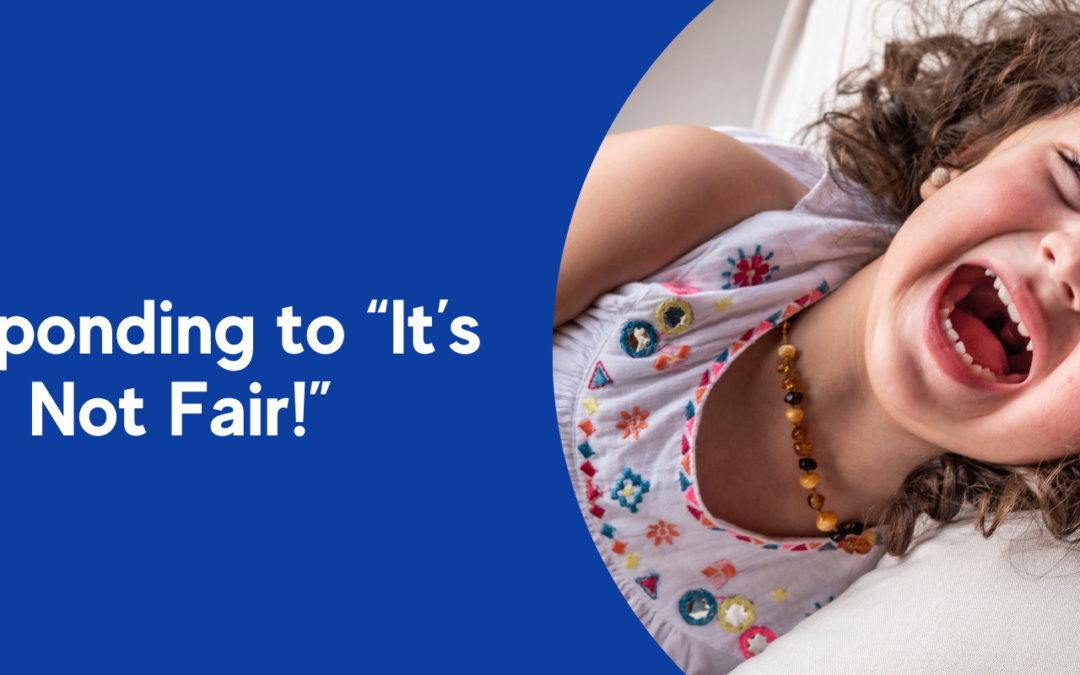“She got a bigger cookie than me!” “We always get to do what he wants!” “All my friends get to stay up later than me!” “It’s not fair!”
Children are very aware of what’s “fair”. However, this sense of fairness is based solely on their own wants and needs. When a child sees someone else getting some sort of advantage that she does not have, she feels it is only fair that she receives the same.
It is not uncommon for a child to be perfectly happy with what he has, until he learns that someone else has more, bigger or better. Then suddenly, it’s no longer fair. What the child does not yet understand is that fair does not mean equal. Fair is about everyone getting what they need.
Parents can unintentionally send messages that reinforce a child’s belief that fair is the same as equal. For example, if one child needs a new pair of shoes, it may seem harmless to pick up something for the sibling as well, so that each one has something new. But in reality, one child needs shoes today, and the other will most certainly need new shoes in the near future. It is fair that each child gets what they need when they need it, not that everyone gets something from every shopping trip.
When your child is frustrated and believes he is being treated unfairly, it can be helpful to simply let him know that you understand. “You’re upset because you really wanted to go first and your sister got the first turn this time.” You don’t need to bring up all the other times when he went first. If you acknowledge how he feels, he can see that it’s okay to have those feelings, even if it does not change the outcome.
If your child never experiences disappointment, she will never learn how to handle it and grow from it. The truth is that we do not always get to have things our way, but that does not mean that it is unfair.
It is also important for your child to learn to delay gratification. If he always gets what he wants as soon as he wants it, he is likely to be less grateful for what he has. He can save his allowance to make a special purchase, or make careful choices about what he really wants to ask for when his birthday comes around.
When fair is no longer about getting what you want right now just because someone else has it, then your child can start to see fairness in a different light. She starts to develop empathy when she can see that it is fair when everyone has what they need.
Help your child look for opportunities to practice real fairness. This might mean asking a child who is sitting alone to come and play. Maybe he would like to pick out an item or two at the grocery store to donate to the food bank. He could share his toys with his little brother.
There will still be times when your child insists that it’s not fair, but if you can keep the focus on everyone getting what they need rather than getting exactly what someone else has, she will come to understand the real meaning of fairness.

